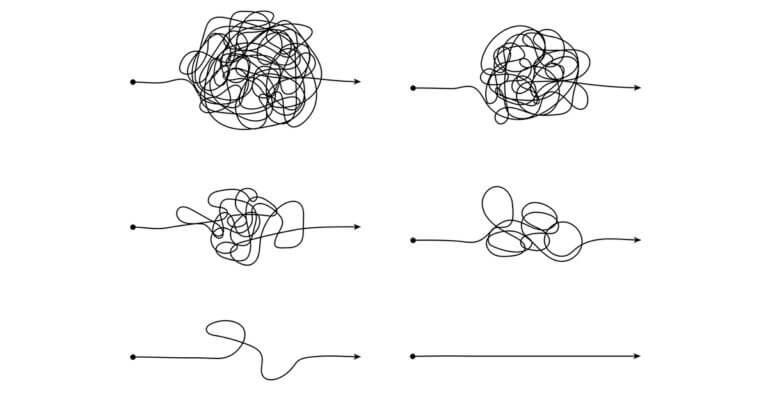February 13, 2024

How Healthcare Revolutionaries Think: 10 Questions with Ramona Wallace, D.O.
Welcome to the latest installment of 4sight Health’s series, How Healthcare Revolutionaries Think. Our interview series profiles healthcare instigators who believe that outcomes matter, customers count and value rules.
If you have dinner with Ramona Wallace, D.O., watch what you eat. She is.
Dr. Wallace is in family practice with Grace Health, a patient-centered medical home (PCMH) in Battle Creek, Michigan. She’s also board-certified in functional and integrative medicine and on the faculty in the Department of Family and Community Medicine at Western Michigan University Medical School.
Functional medicine is the medical specialty of identifying and treating the root cause of a disease, not treating the disease or its symptoms. Dr. Wallace said the root cause of many chronic diseases is a poor diet. She embodies the food as medicine movement, which believes that most chronic diseases could be treated, reversed if not prevented by a nutritional diet that maintains the human gut microbiome.
I spoke with Dr. Wallace about her approach to treating patients and why vitamin deficiency is a marker for social determinants of health. You also can listen to my podcast interview with Dr. Wallace where we discussed flagging patients who miss appointments, goldfish inventory, meat glue and more.
1. Dr. Wallace, if I asked you to write a dictionary entry for “healthcare revolutionary” what would you write?
Dr. Wallace: I would write, “Someone who causes dramatic change.” Why would someone want to be a healthcare revolutionary? Why would someone want to cause dramatic change? We have a phenomenal healthcare system. Our medical technology is second to none. We have wonderful clinicians. Why would I want to change that system? There are two reasons. One, we no longer practice personalized medicine. Patients are all on some bell curve. And two, life expectancy is flat or dropping. If we’re so good, what’s happening?
2. Do you have a favorite healthcare revolutionary? Someone who matches your definition and thinks today’s healthcare system is good but not good enough.
Dr. Wallace: Let me give you two. One is Esther Dyson. Love her. Just absolutely love her. Esther believes, like I do, that health is community. It’s where we live, where we play, where we work. I’ve gotten to work with Esther every month. If we could transform healthcare into what she envisions as healthy lives and healthy communities, that would be revolutionary.
Two is my husband, Nate Dickman. He is a retired lieutenant colonel in the U.S. Air Force. He was an F-16 fighter pilot. He’s an engineer and biotechnologist. He’s the most scrutinizing human being I’ve ever met. It’s always, “Why? Why? Why?” He’s continuously challenging what I know and making me better.
3. I’ve interviewed dozens of people for this series and you’re the first one who said their spouse was a healthcare revolutionary. Does that make you a perfect match? Are you a healthcare revolutionary?
 Dr. Wallace: I don’t know if I’m a healthcare revolutionary. But I think that what I do is revolutionary. It’s revolutionary because it’s so simple. It’s so obvious. I am trying to cause dramatic change. But it costs me nothing to have a doctor-patient relationship except my time and their time, and the time that we invest in each other. That’s personalized medicine. That’s the value of going to the doctor. That’s what I give to my patients. My time.
Dr. Wallace: I don’t know if I’m a healthcare revolutionary. But I think that what I do is revolutionary. It’s revolutionary because it’s so simple. It’s so obvious. I am trying to cause dramatic change. But it costs me nothing to have a doctor-patient relationship except my time and their time, and the time that we invest in each other. That’s personalized medicine. That’s the value of going to the doctor. That’s what I give to my patients. My time.
4. Can you give me an example of one of your patients whose diet obviously was the root cause of a medical condition?
Dr. Wallace: I had a patient whose leg wound wouldn’t heal. I asked him what he typically ate and drank in a day. He drank about six 2-liter bottles of Mountain Dew each day. He smoked about two packs of cigarettes a day. And most days for lunch he ate a sandwich out of a vending machine. He’s 30 years old and this had been going on for years. I said, “Gosh, you seem like you have scurvy.” He looked at me like I was crazy. I checked his vitamin C. Guess what? He had no vitamin C. He had scurvy.
We removed the Mountain Dew, the cigarettes and the vending machine sandwiches. Guess what? He felt better, and his leg wound started to heal like it should. If you think that’s a one-off case, it’s not. Far from it. I could tell you hundreds of stories like that.
5. Is functional medicine that easy all the time?
Dr. Wallace: The first R of functional medicine is “remove.” That’s what we did with this patient. We removed all the things that were at the root cause of his medical condition. There are five Rs, but it’s hard to remember the other four because the first one works most of the time. The others are replace, re-inoculate, repair and rebalance. It’s about respecting the gut, which is a very intricate microbiome.
6. Why don’t more primary care physicians or medical specialists start with diet when they’re trying to diagnose a patient’s symptoms? Shouldn’t that be the first item on the clipboard of questions they’re supposed to ask?
Dr. Wallace: It’s our intrinsic bias as clinicians. Who would think someone could drink six 2-liter bottles of Mountain Dew? But they do. You wouldn’t think to ask unless you’ve experienced it with your patients. If you’re a neurologist, you don’t talk to someone about what they’re eating, right?
When a patient comes in complaining of stomach acid, we offer a proton pump inhibitor. “Here’s your PPI. Have a great day.” Or if they come in with pain and want to get their pain meds refilled, we write them a script for Norco 10 so they can play with their children or grandchildren. The CFO likes you because your patients come in every month for 30 seconds, they get a prescription, they’re out the door, and you get to charge for an office visit. We don’t ask why they’re having pain or why their stomach is burning. Dare ask them to talk about their pain so you can get to the root cause, you get written up and sent to administration because you’re questioning the patient, not being nice to the patient, not believing the patient. Worse yet, you’re accused of being prejudiced and biased.
I enjoy being labeled a functional medicine doctor. If you’re looking for me to refill your narcotics, I’m not your person. The word on the street is I’m not going to give it to you. Patients talk. Patients know who to go to if they just want their pain meds filled.
7. There are clearly financial incentives in what you’re describing. More office visits, more tests, more prescriptions rather than educating a patient about eating right and never seeing them again. Instead, they’re coming back with scurvy and other diseases more common in the 1700s.
Dr. Wallace: Medicare and Medicaid don’t cover vitamin testing or vitamin assay panels. Do you know how much it costs for a vitamin D test? Only $16. But I have patients who have had 36 MRIs. I ran labs on 650 of my patients — 177 of them had scurvy. I have 122 patients with paradoxing deficiency, all comorbidities, because the body can’t heal. These people have been marginalized. Their eating patterns are predictive pathways to disease. If you’re drinking a half-gallon of wine a day, and that’s all you’re drinking, your thiamine is going to be low, and you probably have beriberi. It’s not rocket science.
8. Tell me more about the vitamin deficiency tests you’ve run on your patients and how they compare with the population generally.
Dr. Wallace: There is no national nutritional deficiency registry. No national database on the nutritional deficiencies that occur in the general population. That’s mostly because the healthcare industry does not pay for vitamin testing. There would be more testing of vitamin deficiency if people paid for it. But since they don’t, no one has the data. But I have the data. I’m running the data. That’s revolutionary, right?
I have 1,800 patients assigned to me. I screen everyone for nutrition. I do the exact same screening. I talk to them about their social determinants, food insecurities and health. Of them, 655 were at risk for malnutrition. They were deficient in one or more micronutrients. Like I said earlier, 177 of them had scurvy — a vitamin C deficiency. They suffered from dental loss, poor wound healing, chronic pain, fatigue. My job is to get them functioning again, and we start looking at diet as the root cause.
I published an editorial in the British Medical Journal in October about how we should start identifying and treating nutritional deficiencies, and I’m working to get my study results published.
9. You mentioned social determinants, food insecurities and health. Connect the dots between those and functional medicine for me.
Dr. Wallace: Vitamin deficiencies are certainly a marker for disruptions in social determinants of health. In medicine, we have genetic markers that we know predispose people to specific diseases. Vitamin deficiencies are markers for social determinants.
Let’s say a patient has a vitamin C deficiency. The patient most likely is a smoker and doesn’t have access to fresh fruits and vegetables. Do they live in a food desert? Do they have a refrigerator? Do they possess the knowledge and have the money to buy fresh fruits and vegetables? Do they have transportation to the grocery store? Do they have teeth so they can eat fresh fruits and vegetables? If they can, can they digest them properly? All those questions start with a vitamin test as a marker. Isn’t that cool?
10. That is very cool. Let me end with a personal question. What kind of dinner guest are you? If I didn’t know you, and I invited you over for dinner, what would happen?
Dr. Wallace: I hope you would serve real food. By real food, I mean something that your grandma would instantly recognize as coming from a real animal or plant. Nothing so robustly morphed or adulterated that it’s 10 steps away from a real animal or plant. It would have to be something from category one or category two on the NOVA Food Classification System, which groups food into four categories by level of how much it’s processed. My mom lives with us. She’s a Hungarian immigrant. She’s tough. Really, really tough. And she finds us all very difficult.
Burda’s Final Bit
You are what you eat. Smoking is bad for you. Stay away from processed food. Don’t drink too much. I’ve been hearing those warnings all my life as have most people. We ignore them when we feel pretty good. It’s only when we feel lousy do we go to the doctor to find out what’s wrong. If Ramona Wallace, D.O., is right, what’s wrong is us and what we consume. Making vitamin testing a regular part of routine blood work during a patient’s annual wellness visit makes total sense. A vitamin deficiency could indicate that something is off in a person’s diet that’s causing other health problems. Health plans need to incentivize providers to order vitamin testing as part of their value-based care models. It’s only $16. I spend almost that much at Chipotle for lunch. It’s burrito bowls from now on.
Ramona Wallace, D.O., is a board-certified family physician as well as board-certified in Functional and Integrative Medicine with the Department of Family and Community Medicine at Western Michigan University Homer Stryker M.D. School of Medicine, working primarily at the Family Medicine Residency Program — Battle Creek. She is a graduate of Michigan State University in East Lansing, Michigan. She earned her medical degree from MSU’s College of Osteopathic Medicine. She completed a family practice residency at Michigan State University — St. Lawrence Hospital Family Practice Residency Program. Board certifications through ABOFM, AOBFM, IFMCP.
Read more Healthcare Revolutionary interviews.
- Healthcare Revolutionary Alejandro Quiroga
- Healthcare Revolutionary Samir Goel
- Healthcare Revolutionary Marcus Whitney
- Healthcare Revolutionary Demi Radeva
- Healthcare Revolutionary Michael Pitt, M.D.
- Healthcare Revolutionary Rebeckah Orton
- Healthcare Revolutionary Dan Trigub
- Healthcare Revolutionary Melina Davis
- Healthcare Revolutionary Bruce Brandes
- Healthcare Revolutionary Lena Chaihorsky
See if your favorites are included in the series and let 4sight Health’s David Burda know who you consider to be a Healthcare Revolutionary.





